- Home
- Critical Decade
- HI Climate Action
- HI Commission
- HI Resources
- HI Equity
- HI Events
Spotlights
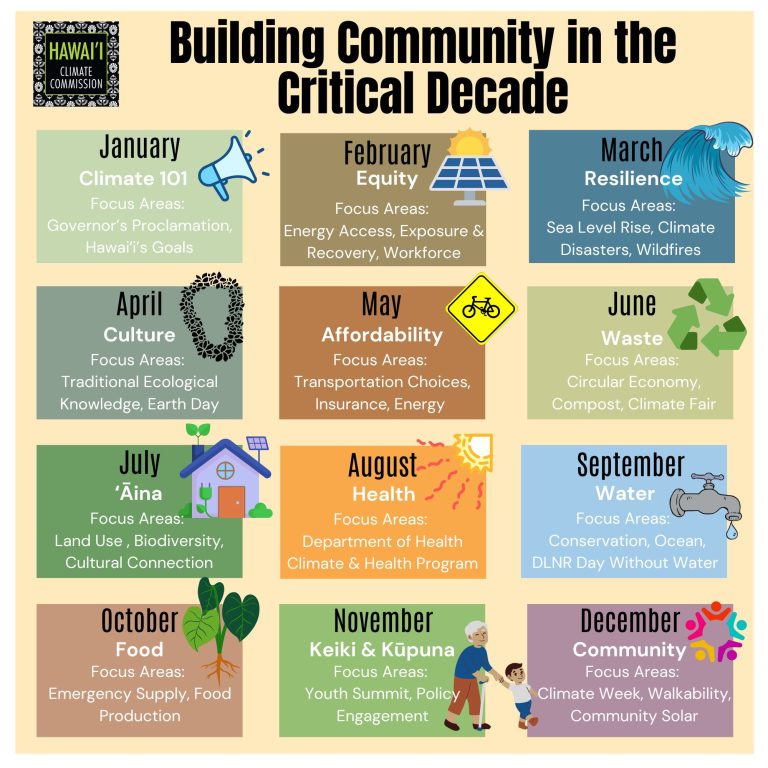
January: Climate 101 🌏
We kick the year off by grounding our understanding of the climate crisis and its unique impacts on Hawai‘i. Learning about what happens in our environment as a result of climate change such as rising temperatures, sea level rise, and changing rainfall patterns is essential for recognizing the ways that these changes in the climate can affect our homes, ecosystems, communities, and livelihoods.
Tips for Volunteering
Volunteering in your community is a great way to contribute to the work already being done to fight climate change! These resources can help you find an organization:
- Climate Protectors Hawai‘i has organized a list of local organizations working on addressing climate change
- The Climate Commission posts volunteer opportunities on our events calendar as they occur
- The Hawai‘i Tourism authority posts volunteer opportunities sorted by activity and island
February: Equity ⚖️
Climate change disproportionately impacts marginalized and underserved communities including Kānaka Maoli, Pacific Islanders, low-income, kūpuna, and keiki. Equitable climate actions means ensuring that all members of community have a voice in the decision-making processes and have access to resources that allow them to participate in the transition to a climate-ready Hawai‘i. This is why for the month of February, we center equity in the face of the climate crisis.
Renewable Energy Tips
Hawai‘i is aiming for 100% renewable energy by 2045 and every bit of renewable energy generation matters. These resources can help you get started:
- Homeowners can install rooftop solar on your home using the GEM$ program
- Home and apartment renters can join the Community-Based Renewable Energy program
Reducing Energy Usage
Hawai‘i is aiming to save over 4,000 gigawatt hours of electricity through energy efficiency by 2030. Saving energy not only helps to protect our climate but it also can help you save money on your energy bills. These resources can help you learn how you can save energy this year:
- Learn about our energy efficiency goals
- Replace your appliances with energy efficient models using Hawai‘i Energy Rebates
- Easy strategies to save energy at home
March: Resilience 🌱
As an island state, we are already experiencing climate change, necessitating urgent action to build resilience as a community. For communities in Hawai‘i, building resilience means being able to withstand and recover from climate change impacts while also strengthening cultural identity and community ties. For the month of March, we will focus on resilience in the midst of the climate crisis.
April: Culture 🌈
In addressing the pressing environmental challenges amidst the climate crisis, it is important that we integrate cultural values and practices into the actions we take around climate hazards. By doing so, we build a more effective, inclusive, sustainable approach to addressing the climate crisis. Realizing the ways in which the environment is so deeply intertwined with the indigenous people who have tended it for generations, we hone in on culture for the month of April.
May: Affordability 🏠
Our actions towards climate change mitigation mean nothing if a sustainable future isn’t accessible to all. This is why, for the month of May, we focus on affordability. Understanding that rising costs of energy, on top of costs of living, can be barriers to adopting green practices, we hope to highlight the importance of making sustainability affordable for all community members to contribute to and benefit from.
Clean Transportation Tips
If everyone committed to using clean transportation for just half of our trips under a mile, we could save $900 million and 2 million tons of C02 every year! These resources can help you find your new favorite way to travel around your island:
- Calculate the cost of driving
- Travel by bus: Hawai‘i, Maui, O‘ahu, Kaua‘i
- Travel by rail: O‘ahu
- Travel by bike: O‘ahu Bicycle Program, Biki Bikeshare
- Carpool: Carpooler’s Survival Guide
- Walk: Pedestrian Resources
June: Waste ♻️
When it isn’t properly managed, waste significantly contributes to greenhouse gas emissions. Waste management is crucial for addressing climate change in Hawai‘i, this is why June is all about waste. Proper waste management reduces greenhouse gas emissions from landfills, where organic materials are left to decompose and release methane–a potent greenhouse gas. The islands face the pressing problem of single use plastics, which not only pollute our marine environments but also require substantial energy for both production and disposal.
Tips for Reducing Food Waste
Hawai‘i throws away 237,000 tons of food per year or 26% of the available food supply. Your actions can help prevent this waste and protect our environment. These resources can help you get started:
- The reality of food waste in Hawai‘i
- How to prevent food waste
- Composting services: Hawai‘i, Maui, O‘ahu, Kaua‘i
- Composting at home
Tips for Reducing Consumption
One of the easiest ways to be climate smart is to reduce your consumption of goods. A significant amount of greenhouse gasses are released during the creation, transport and disposal of goods. You can help fight climate change by refusing items and single use plastics you don’t need and only buying the necessities. These resources can help you get started:
- Introduction to sustainable consumption
- Simple habits to help you reduce your consumption
- Do a home waste audit
July: ʻĀina 🌋
The concept of mālama ‘āina, care for the land, exemplifies a kind of environmental stewardship that has been practiced for many years. These values reflect a deep respect for both the land and its resources. Climate solutions based in nature are best for Hawai‘i. As we build community this year, July is about ‘āina.
Tips for Planting Native Plants
Planting native plants in your home or community supports our native ecosystems. These resources can help you get started:
- Identify native plants that might be right for your home with this guide
- Growing plants from seed guide
- Community gardens on O‘ahu
- Visit our calendar of events to find a planting project near you
August: Health ❤️🩹
There exists a strong connection between climate change and public health. Events of extreme weather, heat-related illnesses, poor air quality, infectious diseases, disruptions to food security due to droughts, and mental health issues are some of the realities we face as result of our changing climate. It is for these reasons that we must start treating the climate crisis like a public health crisis. A comprehensive approach that recognizes the ways in which our climate and health are intertwined will help us to build healthier communities and a more sustainable future for everyone. This is why, for the month of August, we prioritize climate action as a matter of public health.
September: Water 💧
For the month of September, we highlight the critical role of water in sustaining life and sustaining our communities. Climate change is threatening the availability of fresh water and the health of our oceans. The change in rainfall patterns as a result of climate change threatens our ability to access clean drinking water. Less rain also leads to drought and wildfires.
Tips for Reducing Water Usage
Climate change threatens the availability of freshwater in Hawai‘i. Your actions to reduce your water usage will help us preserve our freshwater resources and protect our environment. These resources can help you learn how you can save water this year:
- Identify areas you can save water via a simple water audit
- Use a low flow shower head
- Change your appliances and habits
October: Food 🥭
In Hawai‘i, the issue of food in the context of the climate crisis is a critical one as our islands face unique challenges that threaten agricultural productivity and food security. This is why we focus on food for the month of October.
Tips for a Low Carbon Diet
Changing your diet is one of the easiest ways to reduce your carbon footprint. Whether you eat less meat, choose local ingredients, or switch your diet to vegetarian or vegan, your actions will be both delicious and impactful. These resources can help you get started:
- Why is Eating Local Important?
- Find a famers market to buy your groceries
- More farmers markets
- Vegetarian and Vegan diets in Hawai‘i
Tips for Reducing Food Waste
Hawai‘i throws away 237,000 tons of food per year or 26% of the available food supply. Your actions can help prevent this waste and protect our environment. These resources can help you get started:
- The reality of food waste in Hawai‘i
- How to prevent food waste
- Composting services: Hawai‘i, Maui, O‘ahu, Kaua‘i
- Composting at home
November: Keiki and Kūpuna 👵🏽🧒🏽
Our youth and kūpuna are both vital to climate change action in Hawai‘i. Our youth represent the future and are crucial for driving innovation and advocating for policies that promote sustainable climate action. Our kūpuna carry invaluable traditional knowledge that can inform climate strategies today. By including kūpuna in our discussions on the climate, we both honor their contributions and ensure that cultural values guides our approaches. Collaboration of the youth and kūpuna is a representation of the kind of intergenerational dialogue and holistic approach that is needed in generating solutions specific to the unique challenges faced by Hawai‘i communities as a result of the climate crisis.
Advocating for laws can help combat climate change on a systemic scale, There are many ways you can get involved with your lawmakers on the federal, state, county, and local scale. These resources can help you get started:
- Find your federal representatives
- Find your state representatives, find their contact information, submit testimony
- Find your county council members: Hawai‘i, Maui, Honolulu, Kaua‘i
- Submit testimony to your county council: Hawai‘i, Maui, Honolulu, Kaua‘i
- Find your neighborhood board: Hawai‘i, Maui, O‘ahu, Kaua‘i
December: Community 👫🏻👨🏽🤝👨🏾👩🏽🤝👩🏾
Our ability to navigate through the climate crisis and all of its challenges is not possible without community. Community-based initiatives in the face of climate change enhances resilience by drawing on both local and traditional knowledges and practices. With the local community involved in these decision-making processes, the voices and concerns of the people most directly impacted help to guide the direction of climate solutions. Climate policies and actions are more effective when communities are empowered to support and participate in them. By fostering collaboration and ensuring that local needs and priorities are at the forefront, we create solutions that are not only more sustainable but also more just and equitable for all.
Tips for Talking with Family and Friends about Climate Change
Starting the conversation about climate change can be difficult but it remains an important action to take in addressing the climate crisis. These resources can help you get started:
- How to talk about climate change from the Nature Conservancy
- Climate Conversation Tips
- A video on The Secret to Talking about Climate Change
January

We kick this year off by grounding our understanding of the climate crisis and its unique impacts on Hawai‘i. Learning about what happens in our environment as a result of climate change such as rising temperatures, sea level rise, and changing rainfall patterns is essential for recognizing the ways that these changes in the climate can affect our homes, ecosystems, communities, and livelihoods.
Hawai‘i leads the nation in becoming the first to commit to net zero emission energy production and net negative carbon economy. The state seeks to lead by example in adapting to the impacts and mitigating the extent of climate change, being the first state in the U.S. to declare a climate emergency in April of 2021. However, we are currently not on track to meet our 2045 decarbonization goal. Accelerated actions needs to be taken to reach these goals and support communities adapting to the climate impacts that are already here.

Hawai‘i Climate Goals
- By 2045, transition to 100% renewable energy
- By 2045, sequester more atmospheric carbon and greenhouse gases than emitted
- By 2030, save 4,300 gigawatt hours of electricity through energy efficiency
- By 2035, train 1 million new registered apprentices for climate and clean energy
- Achieve zero emissions across all transportation modes within the state
- By 2035, transition 100% new light-duty sales to zero emission vehicles
- By 2035, transition 100% light duty state fleets to zero emission vehicles
February

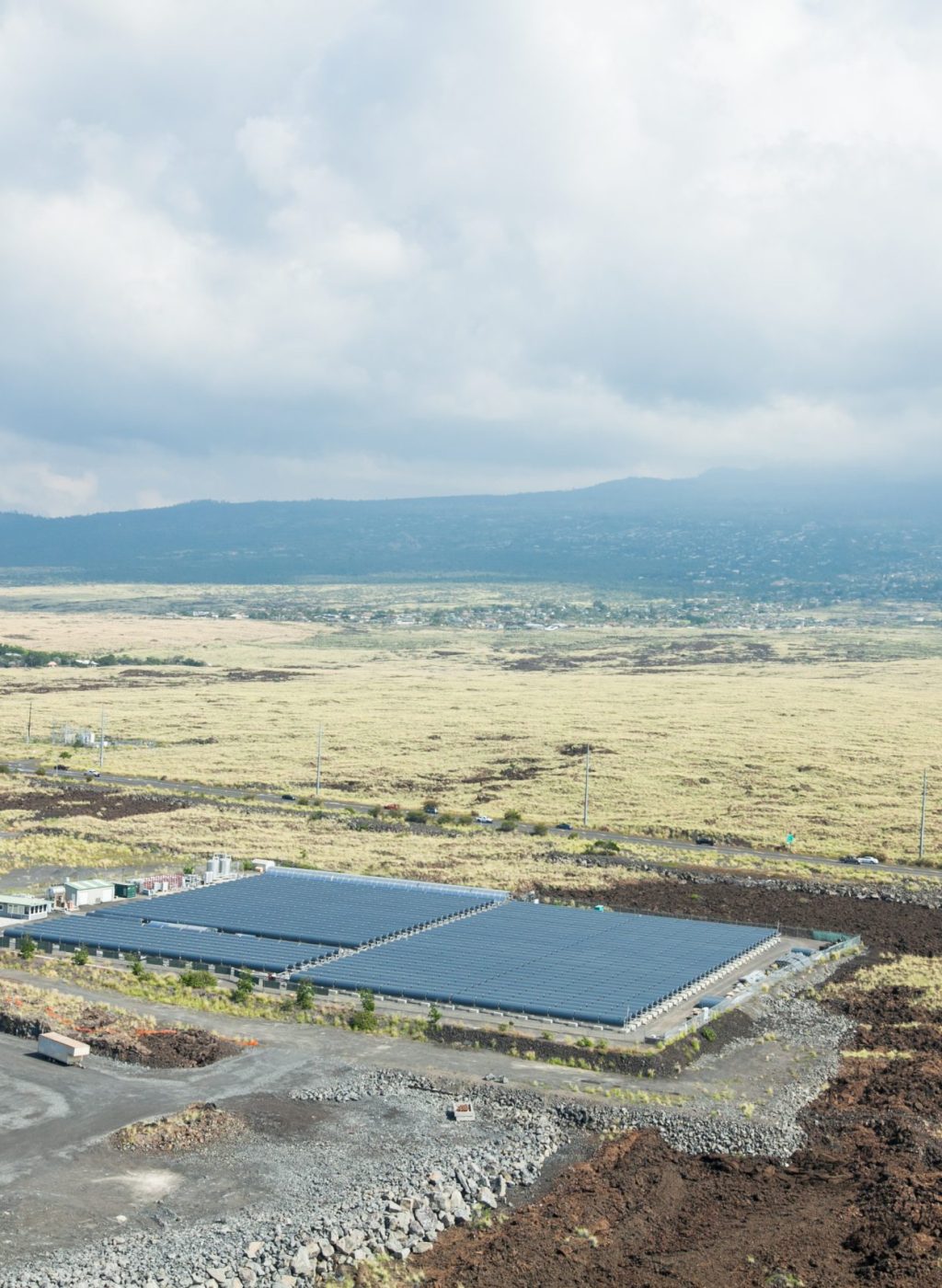
Climate change disproportionately impacts marginalized and underserved communities including Kānaka Maoli, Pacific Islanders, low-income, kūpuna, and keiki. Equitable climate actions means ensuring that all members of community have a voice in the decision-making processes and have access to resources that allow them to participate in the transition to a climate-ready Hawai‘i. This is why for the month of February, we center equity in the face of the climate crisis.
Prioritizing equity while we fight climate change address its impacts will allow for the creation of more inclusive policies that address systemic inequalities and empower communities for generations to come.
Climate equity is the process of ensuring that Hawai‘i’s climate change responses prioritize and uplift disadvantaged communities, particularly those most burdened by the effects of climate change as well as colonialism and historical inequities. Mitigation and adaption strategies should incorporate traditional, place-based Native Hawaiian knowledge, provide equitable access to resources, and prevent future inequities through systemic change. This process must also ensure that the economic benefits of transitioning to a climate-smart economy are shared among all residents, particularly vulnerable, and historically marginalized communities.
Energy Access
In Hawai‘i’s transition to renewable energy, it is crucial that vulnerable communities are able to benefit. Increase access to financing mechanisms that allow low-income communities to adopt clean renewable energy resources such as community-based renewable energy (CBRE) projects will help achieve equitable energy transition.
Exposure and Recovery
Climate change hazards disproportionately affect low-income and Native Hawaiian communities due to limited resources for recovery. It is important that vulnerable populations are receiving adequate support before, during, and after climate-related disasters. Equitable access to disaster preparedness, response resources, and long-term recovery efforts provide long-term community resilience. Resilience hubs are emerging models for building resilience and emergency support capacity. Adequate insurance coverage is getting harder for vulnerable households to afford and even find coverage, and this needs to be addressed to ensure that our most burdened communities can recover from climate hazards and natural disasters.
Workforce
As Hawai‘i transitions to a climate-smart economy, we need to ensure that Native Hawaiians, low-income, and disadvantaged communities have access to training and job opportunities in emerging sectors. We are focused on creating pathways for equitable workforce development in green economy sectors, including career training programs and educational opportunities. It is important to foster collaboration between different local groups that are addressing workforce development, and through such collaboration we aim to support targeted programs that reduce employment disparities and promote inclusive economic growth that addresses emerging climate challenges.
MARCH

As an island state, we are already experiencing climate change, necessitating urgent action to build resilience as a community. For communities in Hawai‘i, building resilience means being able to withstand and recover from climate change impacts while also strengthening cultural identity and community ties. For the month of March, we will focus on resilience in the midst of the climate crisis.
Educating local communities about climate change impacts and involving them in adaption planning can help to build climate resilience. Additionally, we become more resilient when we implement things such as nature-based solutions, community-based conservation efforts, and policies promoting renewable energy to reduce greenhouse gas emissions, while also integrating traditional Hawaiian knowledge systems to inform our decision-making processes.
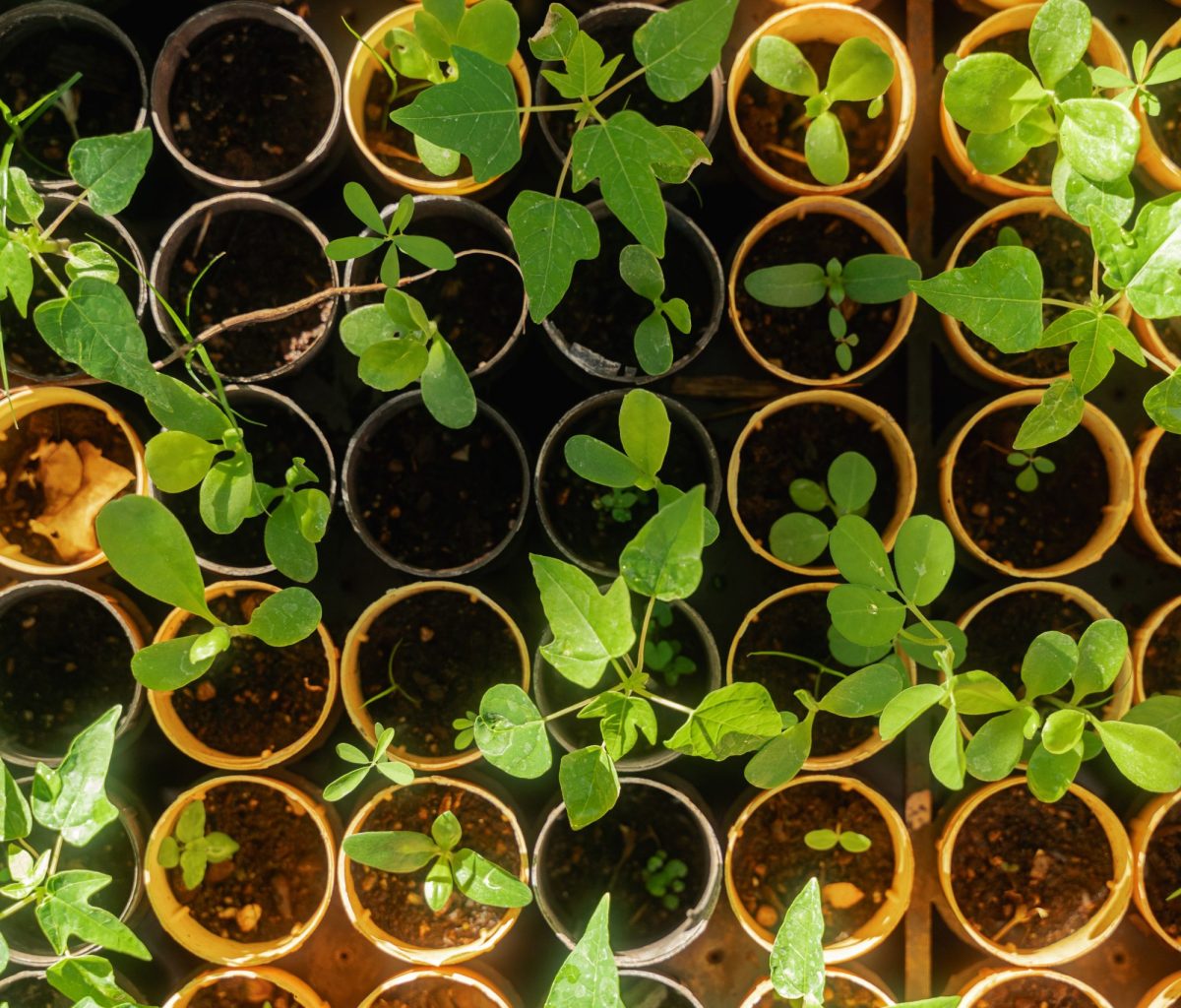
Climate Disasters
Climate disasters significantly impacting Hawai‘i include rising sea levels causing coastal erosion and flooding, more frequent and intense storms, wildfires exacerbated by drought, coral bleaching due to warmer ocean temperatures, and changes in rainfall patterns leading to both drought and events of heavy flooding.
Disaster Insurance
As climate disasters such as storms, wildfires, and flooding become more frequent as a result of climate change, communities become faced with issues regarding personal insurance coverage. The lack of insurance coverage and increasing insurance premiums are a threat that communities face, impacting their capacity to recover following disasters.
APRIL


In addressing the pressing environmental challenges amidst the climate crisis, it is important that we integrate cultural values and practices into the actions we take around climate hazards. By doing so, we build a more effective, inclusive, sustainable approach to addressing the climate crisis. Realizing the ways in which the environment is so deeply intertwined with the indigenous people who have tended it for generations, we hone in on culture for the month of April.
Incorporating Hawaiian knowledge into climate action underscores the deep connection between culture and the environment. By weaving traditional practices into present-day climate initiatives, we are drawing on this wisdom to allow us to enhance the resilience of our communities.
Traditional Ecological Knowledge (TEK)
We recognize that there is a deep understanding of local ecosystems and sustainable resource management practices passed down through generations of Native Hawaiian communities. Incorporating TEK and ‘ike kūpuna into Hawai‘i’s climate change policies is essential for ensuring that solutions are culturally appropriate, sustainable, and rooted in place-based stewardship practices. TEK should inform adaptation and mitigation efforts, respecting Native Hawaiian knowledge systems and empowering these communities in decision-making processes. Traditional agriculture, loko i‘a, fisheries management, have valuable positive effects on climate change mitigation and adaptation.
Mistrust
The history of colonialism and all of its impacts are not foreign to Hawai‘i. Colonialism and the occupation of the Hawaiian Kingdom sit at the root of the economic, social, and environmental disparities that we face today. Additionally, there is complex history of environmental mismanagement due to capitalist interests, which leaves many locals and Hawaiians feeling distrustful of our state government’s efforts to address environmental concerns. The historical lack of inclusion of Hawaiian voices in decision-making processes has created a current situation of mistrust that impedes successful and united efforts to address our current climate and socioeconomic challenges. This makes it difficult to gather data, form relationships, and foster collaboration with community members and leaders. This demonstrates that needs for sensitive and appropriate outreach and education showing the benefits of our efforts to adapt to climate change threats. We must build trust through transparent, culturally sensitive, and community-driven approaches, by working with local community organizations, and building relationships of trust and reciprocation.
Merrie Monarch
The Merrie Monarch Festival is a celebration and demonstration of Hawaiian cultural values, these values are valuable in informing our path forward as we address all of Hawai‘i’s challenges. We hope to align our efforts with the cultural values perpetuated through events such as Merrie Monarch and would like to celebrate the important value of carrying on Hawaiian traditions and knowledge to inform our action of the future.
MAY

Our actions towards climate change mitigation mean nothing if a sustainable future isn’t accessible to all. This is why, for the month of May, we focus on affordability. Understanding that rising costs of energy, on top of costs of living, can be barriers to adopting green practices, we hope to highlight the importance of making sustainability affordable for all community members to contribute to and benefit from.
In Hawai‘i, the issue of affordability in the content of the climate crisis is a particularly pressing one. Addressing these interconnected affordability issues is crucial in fostering equity and resilience.
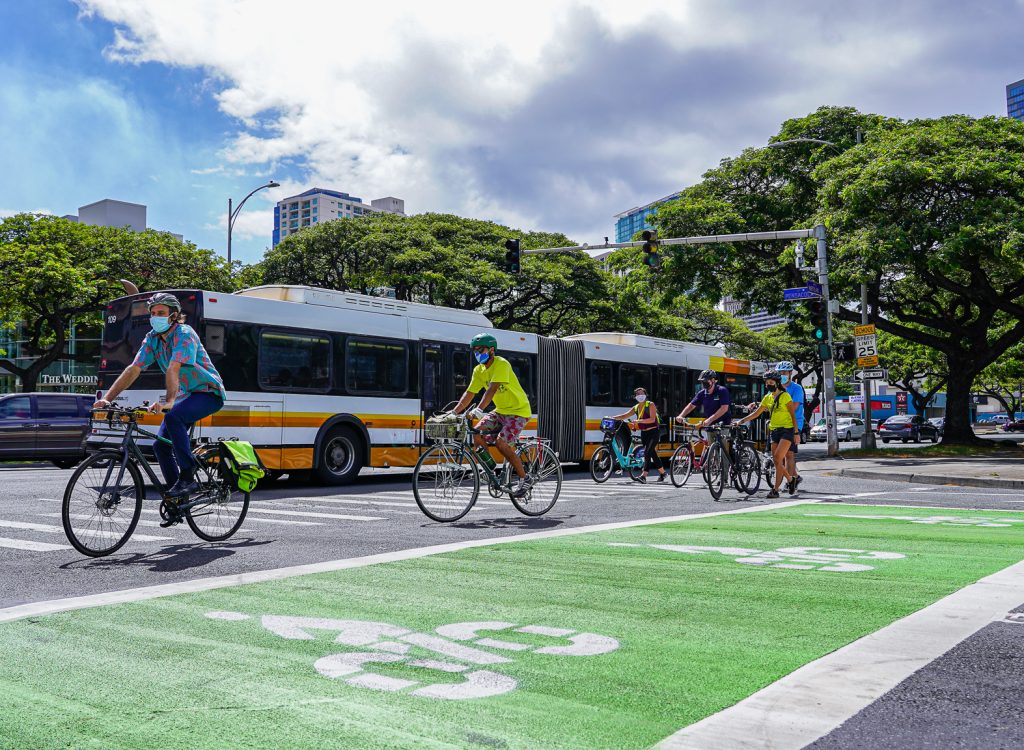
Energy
The transition to renewable energy, a vital step in reducing greenhouse gas emissions, comes with high upfront costs that disproportionately burden low-income households. Energy affordability is crucial for populations vulnerable to the impacts of climate change.
Transportation Choices
Transportation options, especially in more rural areas, can limit access to affordable electric vehicles, furthering reliance on fossil fuels.
Insurance
Lack of insurance coverage and increasing premiums are a looming threat that will increasingly diminish communities’ capacity to recover equitably following disasters. We are working with insurance experts to explore novel solutions to provide disaster insurance to vulnerable communities.
Food
As climate change threatens the agricultural sector, rising food prices burdens already struggling households. There is a disproportionate burden of food insecurity among Native Hawaiian and Pacific Islanders, Asian-Americans, and low-income groups. Under the threat of climate change, the food system must be protected in order to prevent a complete disruption of the food chain.
JUNE

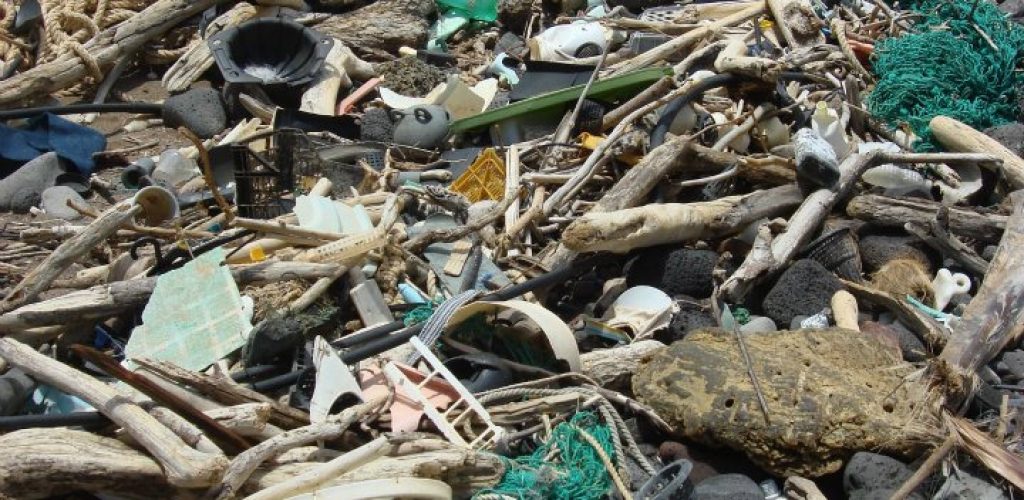
When it isn’t properly managed, waste significantly contributes to greenhouse gas emissions. Waste management is crucial for addressing climate change in Hawai‘i, this is why June is all about waste. Proper waste management reduces greenhouse gas emissions from landfills, where organic materials are left to decompose and release methane–a potent greenhouse gas. The islands face the pressing problem of single use plastics, which not only pollute our marine environments but also require substantial energy for both production and disposal.
Circular Economy
Embracing a circular economy in which materials are reused and repurposed could help to significantly reduce waste while creating economic opportunities for local communities and reducing dependence on imported goods. Aligning with Hawai‘i’s geographic challenges, limited landmass and reliance on imported goods, a circular economy helps to minimize waste while maximizing resource reuse. By designing products for longevity and incorporating recycling systems, a circular economy can significantly reduce the amount of waste generated on the islands, waste that often ends up in landfills or pollutes the ocean.
Compost
Composting significantly reduces methane emissions from landfills by diverting organic waste, thereby mitigating greenhouse gas production. It enriches the soil with nutrients, promoting plant growth which in turn helps sequester carbon dioxide from the atmosphere. Healthier soils with higher organic matter content can better retain water, making crops more resilient to drought conditions. By utilizing compost made from local food scraps, we promote a more sustainable and resilience local food system.
JULY

The concept of mālama ‘āina, care for the land, exemplifies a kind of environmental stewardship that has been practiced for many years. These values reflect a deep respect for both the land and its resources. Climate solutions based in nature are best for Hawai‘i. As we build community this year, July is about ‘āina.
Land is crucial for mitigating the impacts of climate change because its natural ecosystems, like forests and wetlands, act as vital carbon sinks, regulating the climate by absorbing carbon dioxide, while also protecting coastlines from erosion and providing freshwater sources. Managing land use can help adapt to rising sea levels and other climate related challenges.
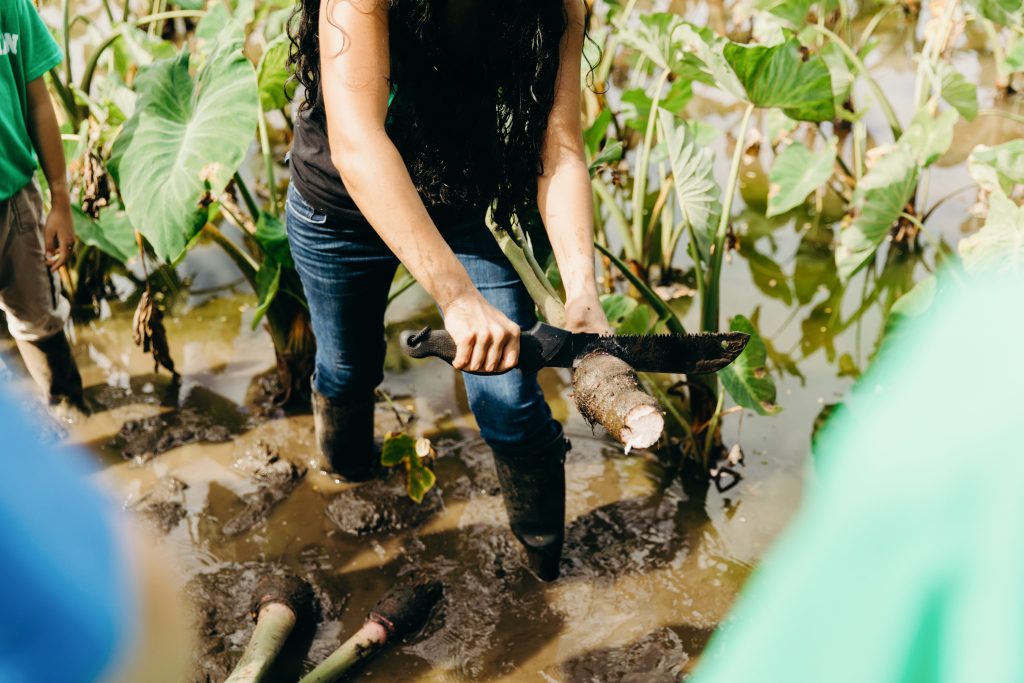
Ahupua‘a
The management of water and land resources through the ahupua‘a systems is an example of a sustainable practice that sustained Hawaiian ecosystems for generations. Through the promotion of ahupua‘a, we can honor traditional practices and emphasize the need to protect our natural resources for generations to come. This land division system reflects a circular economy approach where resources are managed sustainably across different ecological zones, making it a natural fit for modern circular economy principles.
AUGUST

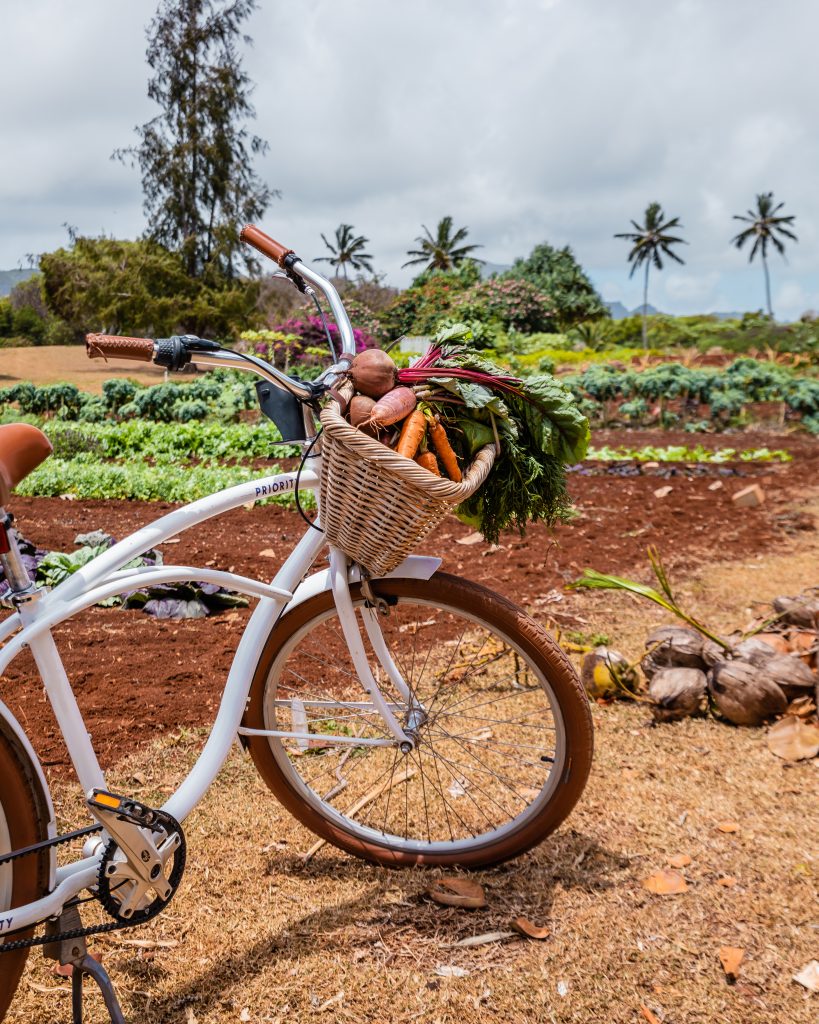
There exists a strong connection between climate change and public health. Events of extreme weather, heat-related illnesses, poor air quality, infectious diseases, disruptions to food security due to droughts, and mental health issues are some of the realities we face as result of our changing climate. It is for these reasons that we must start treating the climate crisis like a public health crisis. A comprehensive approach that recognizes the ways in which our climate and health are intertwined will help us to build healthier communities and a more sustainable future for everyone. This is why, for the month of August, we prioritize climate action as a matter of public health.
Health is a critical component of climate action in Hawai‘i because climate change is already significantly impacting the health of communities in Hawai‘i, particularly by exacerbating existing health disparities among Native Hawaiians and Pacific islanders. Additionally, low-income communities and those with limited access to healthcare are particularly vulnerable to the health impacts of climate change.
Reduction of GHG
Climate change driven by greenhouse gas (GHG) emissions is already causing significant health risks. Rising temperatures are leading to more frequent and intense heatwaves, increasing the risk of heatstroke, particularly among the elderly and individuals with pre-existing health conditions. Climate change also exacerbates air pollution, worsening respiratory illnesses like asthma and impacting people with cardiovascular diseases. We can improve air quality through the reduction of GHG emissions.
Mental Health Impacts
Climate change and Hawai‘i’s unique vulnerability to climate change can significantly impact the mental wellbeing of local communities, especially indigenous communities deeply connected to their land, leading to anxiety, depression, and stress related to the changing environment. Socioeconomically disadvantages groups and rural communities may experience even greater mental health impacts from climate change due to limited access to support services.
SEPTEMBER

For the month of September, we highlight the critical role of water in sustaining life and sustaining our communities. Climate change is threatening the availability of fresh water and the health of our oceans. The change in rainfall patterns as a result of climate change threatens our ability to access clean drinking water. Less rain also leads to drought and wildfires.
Vulnerable communities bear the brunt of these challenges, facing inequities in accessing clean and reliable sources of water.
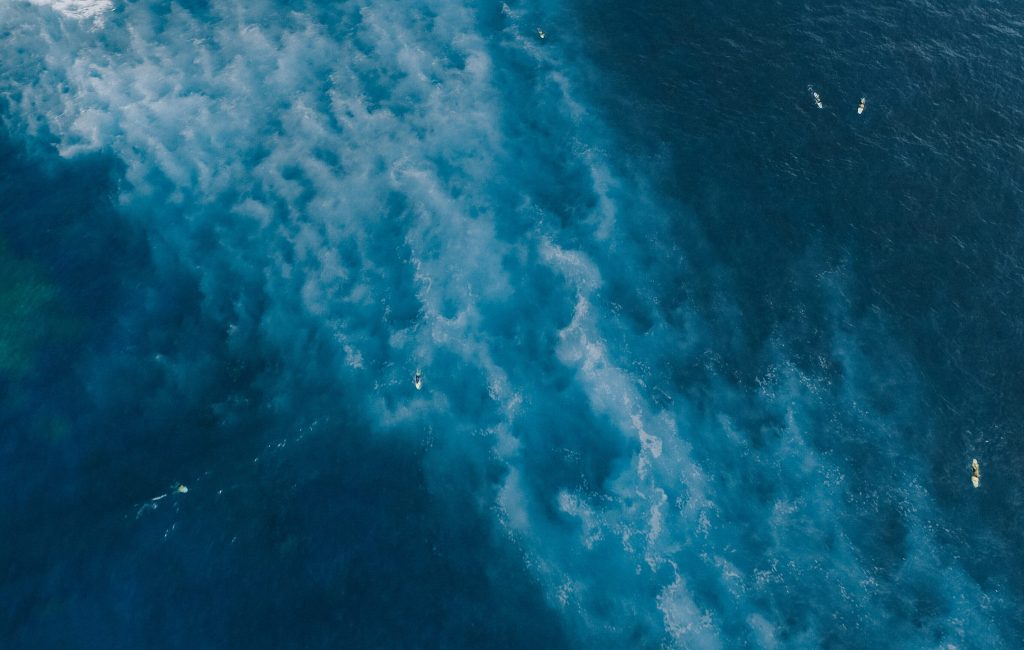
Water Management
Climate change alters precipitation patterns, leading to periods of drought that threaten freshwater supplies, particularly for agricultural use and drinking water. Implementing sustainable water management practices, such as rainwater harvesting and efficient irrigation, is crucial for enhancing resilience against climate impacts.
Water Conservation
The islands are already naturally limited in freshwater sources. Significant decreases in rainfall leads to potential droughts and added stress on the available water supply. Additionally, extreme weather events and rising sea levels make responsible water usage all the more critical to ensuring the sustainability of the islands’ ecosystems and communities. Water scarcity can significantly impact agriculture and the overall quality of life for local communities.
Ocean
The ocean is critically important to climate action in Hawai‘i as it holds a deep cultural significance for Native Hawaiian communities, with traditional practices tied to marine environments. The ocean also plays a a vital role in regulating global climate, and changes in ocean currents. Hawai‘i has extensive coral reef systems, highly sensitive to changes in ocean temperature and acidity. The reef serves as a crucial source of food security as well as coastal protection, but they are not threatened by coral bleaching due to warming waters. Additionally, rising sea levels directly threaten coastal communities in Hawai‘i, causing erosion, flooding, and potential displacement.
OCTOBER

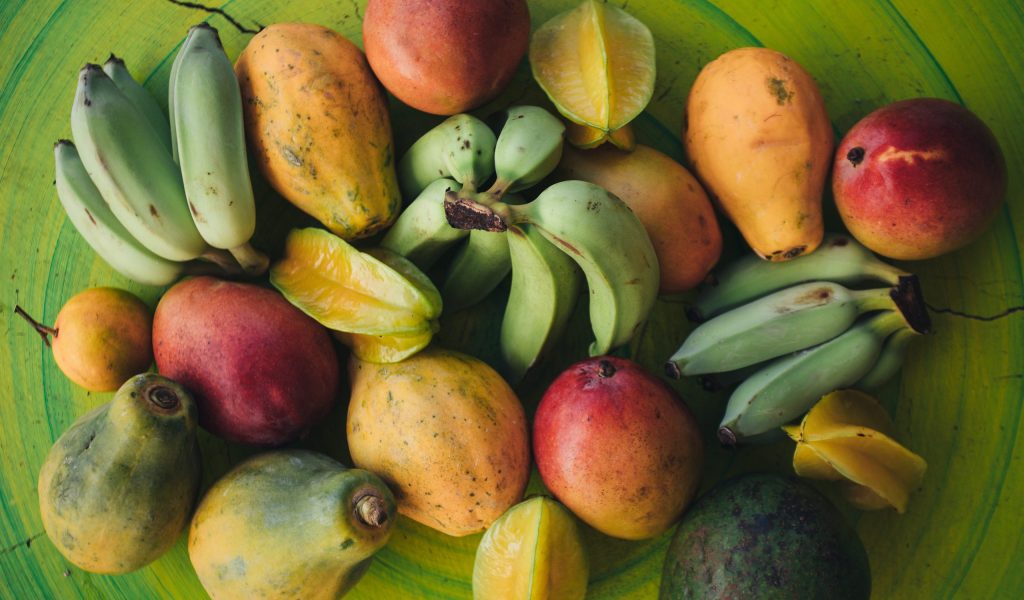
In Hawai‘i, the issue of food in the context of the climate crisis is a critical one as our islands face unique challenges that threaten agricultural productivity and food security. This is why we focus on food for the month of October.
Climate change threatens local food security in Hawai‘i by impacting crop yields and increasing our reliance on imported foods. Hawai‘i imports most of its food, meaning that we are already vulnerable to the impacts of supply chain disruptions. Local food production can help mitigate these issues.
Traditional practices
Incorporating traditional Hawaiian farming practices can be integrated into climate smart agriculture. Traditional Hawaiian food production practices are often more resilient to changing environmental conditions, can promote biodiversity, and provide a more sustainable food system compared to larger-scale, non-native agricultural methods.
Emergency Supply
An emergency food supply is essential when talking about climate disasters such as droughts, floods, and storms because these extreme weather events disrupt food production and distribution chains leading to food shortages. It is important that readily available food reserves are established for people to access food and nutrition during these times.
Climate Smart Production
Hawai‘i is heavily reliant on imported food, making it vulnerable to disruptions caused by extreme weather events links to climate change. By adopting climate-smart practices like water conservation techniques and drought-resistant crops, local farmers can increase food security, reduce greenhouse gas emissions from agriculture, and build resilience against changing weather patterns, like droughts and heavy rainfall.
Soil
Soil is the second largest carbon sink after the oceans, making it stores vast quantities of carbon dioxide that would otherwise be free in the atmosphere. Soil is crucial for both food production and mitigating the effects of climate change.
NOVEMBER

Our youth and kūpuna are both vital to climate change action in Hawai‘i. Our youth represent the future and are crucial for driving innovation and advocating for policies that promote sustainable climate action. Our kūpuna carry invaluable traditional knowledge that can inform climate strategies today. By including kūpuna in our discussions on the climate, we both honor their contributions and ensure that cultural values guides our approaches. Collaboration of the youth and kūpuna is a representation of the kind of intergenerational dialogue and holistic approach that is needed in generating solutions specific to the unique challenges faced by Hawai‘i communities as a result of the climate crisis.
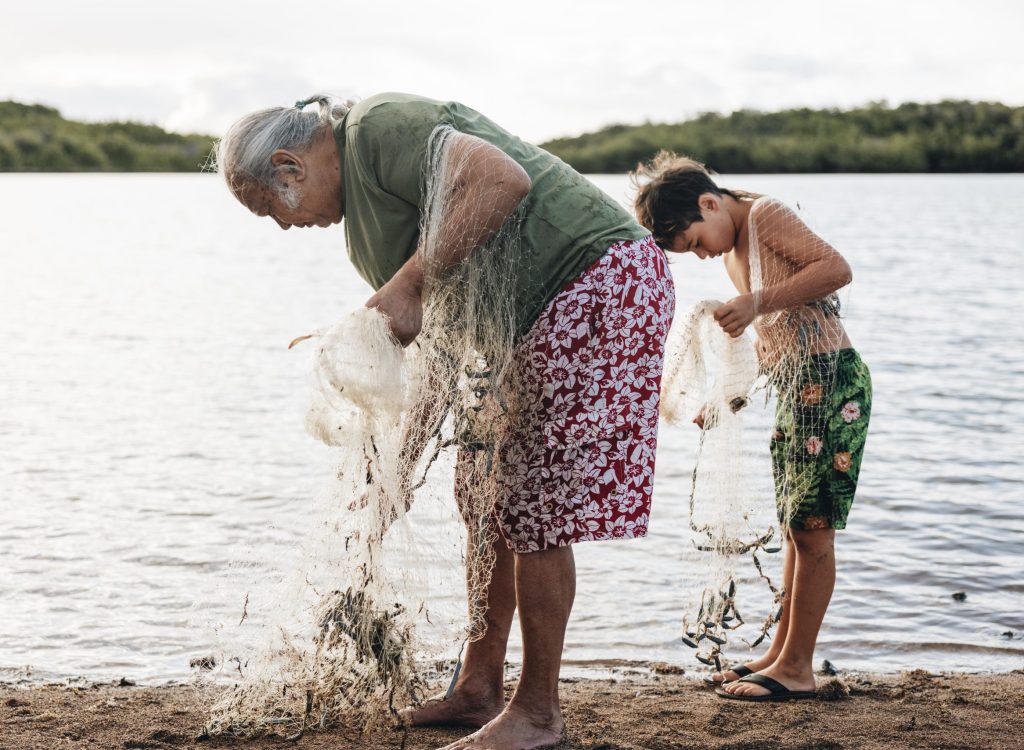
Policy Engagement
The youth of our communities bring innovative ideas and a sense of urgency when talking about issues of climate change. Their generation and their future are the most affected by climate change. Youth engagement in climate policy ensures that these policies consider long-term impacts.
Schools can implement programs that educate students about local ecosystems and climate issues when encouraging them to advocate for their communities. Community events help to promote awareness and celebrate cultural practices that support environmental stewardship.
DECEMBER

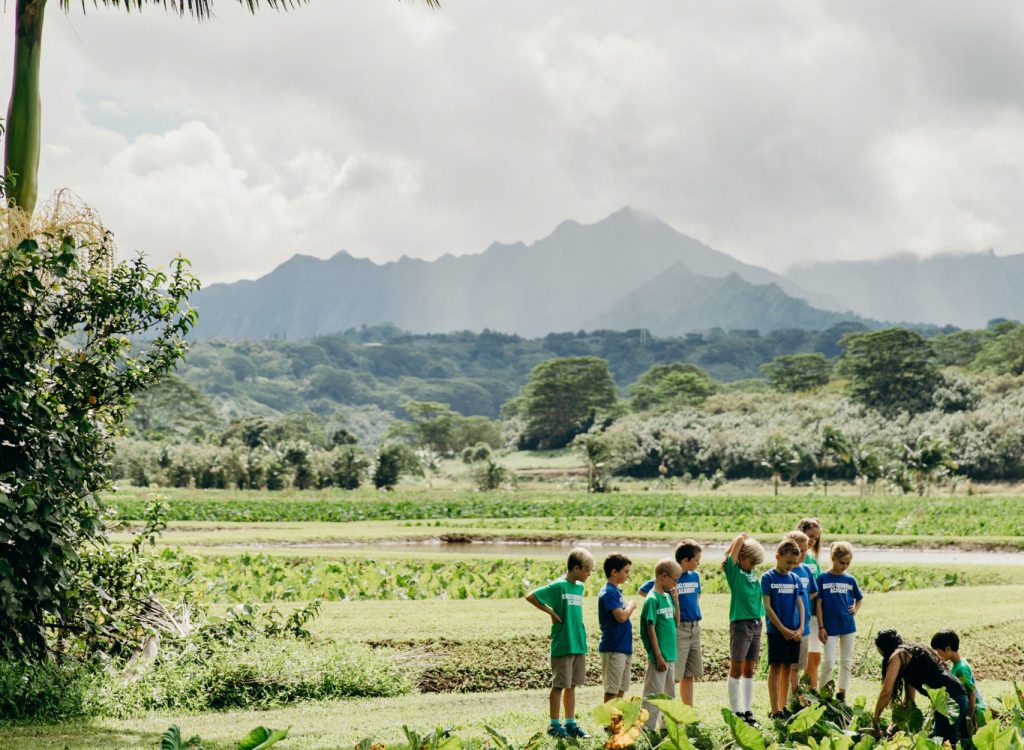
Our ability to navigate through the climate crisis and all of its challenges is not possible without community. Community-based initiatives in the face of climate change enhances resilience by drawing on both local and traditional knowledges and practices. With the local community involved in these decision-making processes, the voices and concerns of the people most directly impacted help to guide the direction of climate solutions. Climate policies and actions are more effective when communities are empowered to support and participate in them. By fostering collaboration and ensuring that local needs and priorities are at the forefront, we create solutions that are not only more sustainable but also more just and equitable for all.
Walkable
Walkable communities are important for Hawai‘i because they significantly reduce our reliance on cards, which are a major source of greenhouse gas emissions in the state. Walkable communities allow for walking, biking, or the use of public transportation for daily travel needs, lowering the carbon footprint and contributing to cleaner air quality.
Community Solar
In 2015, Act 100 of the Hawai‘i State Legislature directed the Hawai‘i Public Utilities Commission to establish a “community-based renewable energy” tariff. Community-based renewable energy is also commonly referred to as “community solar.”
The stated intent of the program is “to make benefits of renewable energy generation more accessible to a greater number” of Hawai‘i residents and businesses who would otherwise be unable to directly participate in renewable energy generations for reasons such as lack of up-front capital for their own renewable energy systems; building or home location; building type or roof design that may not be able to physically support the solar panels; proximity or other limited access to the utility grid; and/or property ownership status.
Urban Forests
Urban forests are crucial to mitigating climate change in Hawai‘i because they help to cool urban areas by providing shade, absorb carbon dioxide from the atmosphere, manage, stormwater runoff, and improve air quality, all of which are particularly important in a tropical climate facing rising temperatures and increased rainfall intensity due to climate change.
Utilizing native tree species in urban forests is important for maintaining biodiversity and ecological balance.